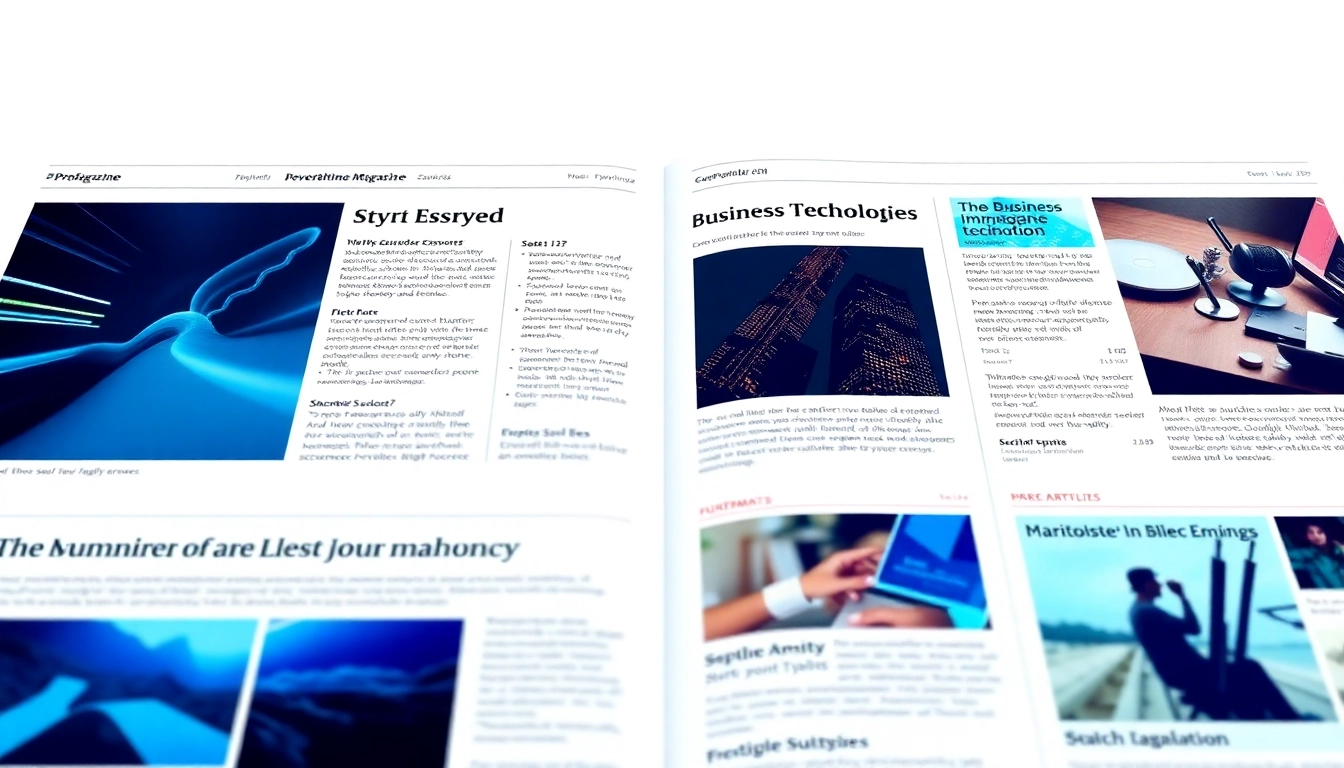
Understanding the Importance of Knowing Your Competitor Customers
In today’s competitive business landscape, understanding your market doesn’t just mean knowing your own customers; it also entails gaining insight into your competitors’ customers. Knowing how to find competitor customers can provide strategic advantages that enable businesses to refine their offerings, improve customer engagement, and ultimately increase market share. In this guide, we’ll explore the pivotal importance of competitor customer insights, the challenges that may arise in this process, and how real-world businesses have successfully leveraged such intelligence to gain a competitive edge.
Why Competitor Customer Insights Matter
Understanding who your competitors are targeting helps in several key areas:
- Market Gaps Identification: Recognizing the customers your competitors are serving allows you to identify gaps in the market and tailor products or services to meet those unmet needs.
- Differentiation Strategies: Knowing what attracts customers to competitors can help you develop effective marketing messages that emphasize your unique selling propositions.
- Product Development: Insights into competitor customers can foster the development of new features and services that better address customer preferences.
- Effective Positioning: Understanding your competitors’ customer base aids in positioning your brand more effectively within your target market.
Common Challenges in Identifying Competitor Customers
While beneficial, gathering insights about competitor customers isn’t without challenges:
- Data Accessibility: Non-public customer data is often difficult to obtain and requires creative research approaches.
- Information Overload: With the abundance of available data, distinguishing relevant insights from noise can be daunting.
- Ethical Considerations: Competitors may employ tactics that are unethical or invasive, which could negatively impact your brand’s reputation if mimicked.
Real-World Examples of Businesses Gaining Competitive Advantage
Several companies exemplify the advantages of understanding competitor customers:
- Spotify: Through analyzing user preferences and behaviors on platforms like Apple Music, Spotify has crafted personalized playlists that cater to user tastes, thereby increasing customer retention.
- Dollar Shave Club: By observing subscription trends and customer feedback in the razor market, Dollar Shave Club successfully captured a significant market share, appealing directly to price-sensitive consumers who valued convenience.
Methods to Find Competitor Customers
Having recognized the significance of understanding competitor customers, let’s delve into actionable methods to uncover these insights:
Utilizing Social Media for Customer Insights
Social media platforms are goldmines for customer insights. Here’s how to leverage them:
- Monitoring Engagement: Analyze which posts and content formats generate the most interactions for your competitors, revealing what resonates with their audience.
- Read Comments and Reviews: Engage in discussions within comment sections of competitors’ posts to gain direct insights into customer preferences and pain points.
- Competitor Analysis Tools: Employ social listening tools to track competitor mentions and customer feedback in real time.
Leveraging Product Reviews and Feedback
Product reviews across e-commerce platforms can offer rich insights into competitor customers. Consider the following steps:
- Analyze Customer Reviews: Use review analysis tools to categorize sentiments expressed in product reviews to better understand customer needs and dissatisfaction.
- Highlight Patterns: Look for recurring themes in reviews related to features, pricing, and customer service.
- Engage with Reviewers: Understand the motivations of positive reviewers to enhance your own customer engagement strategy.
Analyzing Web Traffic and Engagement Analytics
Web analytics can provide a comprehensive view of competitor customer demographics and behavior:
- Using Tools Like SimilarWeb: It enables businesses to analyze competitors’ traffic sources and user engagement, providing insight into customer segments and behaviors.
- Technology Stacks: Understanding which technologies competitors use can hint at their customer engagement tactics and marketing strategies.
- Lead Insights from Content: Evaluating which content draws the most traffic can inform you about what interests their customers.
Tools and Techniques for Competitive Analysis
An effective competitive analysis hinges on choosing the right tools and methodologies. Here’s a breakdown of popular options:
Overview of Popular Tools for Market Research
Numerous tools abound for gathering competitor customer insights:
- SEMrush: This tool helps analyze keyword strategies, backlinks, and ad campaigns that attract competitor customers.
- BuzzSumo: Considered ideal for monitoring content performance, helping you understand the types of content that engage competitors’ audiences.
- Ahrefs: Useful for evaluating competitors’ online presence and identifying areas for potential growth and engagement.
How to Use SEO Tools for Customer Insights
SEO tools can provide valuable insights into competitors’ customer acquisition strategies:
- Keyword Research: Identify which keywords competitors rank for that attract their target customer demographics.
- Backlink Analysis: Understanding where competitors’ backlinks come from can reveal partnerships, publications, and other strategies for engaging customers.
Building Your Own Analysis Framework
Establishing your own framework ensures consistency in analysis:
- Define Customer Profiles: Create profiles based on data gleaned from customer reviews, social media engagements, and demographic insights.
- Set Clear Objectives: Determine what you want to achieve through competitor analysis — be it product improvement, customer acquisition strategies, or messaging adjustments.
- Regular Review Points: Schedule regular intervals for reassessing competitor strategies to stay in the loop regarding market changes.
Implementing Strategies to Engage Competitor Customers
Once insights are gathered, turning them into actionable strategies is crucial:
Crafting Targeted Marketing Campaigns
Utilize the insights gained to launch effective campaigns that appeal to competitor customers:
- Tailored Messaging: Design marketing messages that address specific pain points highlighted in competitor customer feedback.
- Leveraging User Testimonials: Use existing positive customer experiences to create relatable, authentic promotional content.
- Experimentation: Test different campaign types to see which resonates most with the targeted customers from your competition.
Establishing Brand Loyalty Through Unique Value Propositions
Once you attract competitor customers, ensure they remain loyal:
- Highlighting Benefits: Clearly communicate the unique value your offerings provide that competitors may lack.
- Engaging Programs: Implement loyalty programs or referrals that reward customers for continued patronage.
Generating Referrals from Competitor Customers
Encouraging referrals can widen your customer base substantially:
- Incentivized Refer-a-Friend Programs: Offer current customers rewards for referring their friends who may be unhappy with their existing services.
- Utilizing Social Proof: Showcase success stories from converted competitor customers to build trust and encourage new referrals.
Evaluating Your Success in Targeting Competitor Customers
Determining the effectiveness of your strategies requires monitoring and adjustments:
Key Performance Indicators to Monitor
Essential metrics include:
- Customer Acquisition Cost (CAC): Measuring the cost of acquiring a competitor’s customers can help determine the efficiency of your marketing efforts.
- Customer Lifetime Value (CLV): Understanding the long-term revenue generated from newly acquired competitors’ customers can validate your research and engagement strategies.
- Retention Rates: Monitoring retention rates of customers acquired from competitors will indicate the effectiveness of your loyalty strategies.
Adjusting Your Strategies Based on Feedback
Insights gleaned from customer interactions can guide refinements in strategies:
- Sentiment Analysis: Utilize sentiment analysis techniques to gauge how competitor customers feel about your brand after engagement.
- Surveys and Feedback Mechanisms: Use customer surveys to gather insights directly about their experiences with your service versus the competition.
Long-Term Benefits of Understanding Competitor Customer Behavior
In the long run, the insights gained can foster sustainable growth:
- Proactive Market Positioning: Analyzed data allows you to adapt quickly to market shifts, ensuring continued relevance.
- Cross-Promotional Opportunities: Understanding competitors can enable synergistic partnerships that benefit all parties involved.
- Innovative Product Development: Continually monitoring changes in competitor targeting strategies can inspire ongoing innovation in your own offerings.





